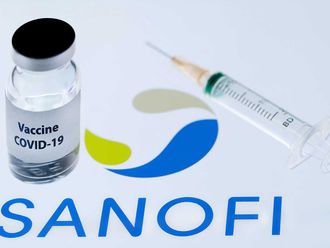London: The euro hit its lowest level against the dollar in nearly a year and Eurozone government bond yields fell to record lows on Tuesday on expectations the European Central Bank might ease monetary policy as soon as next week.
The single currency fell as low as $1.3178 in Asian trade, its weakest since Sept. 9, before recovering slightly, in response to ECB chief Mario Draghi’s comments last week that he was ready to use all available tools if Eurozone inflation fell further. Draghi also called for fiscal policy to play a greater role in reviving the economy.
The next ECB policy meeting is on Sept. 4. Preliminary Eurozone data due on Friday are forecast to show annual inflation was just 0.3 per cent this month, down from 0.4 per cent in July, well below the ECB’s target of just under 2 per cent.
“If it is confirmed over the next few weeks and months that inflation goes closer to zero, they (the ECB) will have to buy everything they can and inflate the balance sheet,” said Frederik Ducrozet, senior Eurozone economist at Credit Agricole. “There is no other option.” European shares rose, extending gain made on Monday in trained thinned by a UK market holiday. The FTSEurofirst 300 index was last up 0.4 per cent at 1,371.34.
The prospect of looser ECB policy and possibly further stimulus helped lift shares in Asia and Wall Street. The S&P 500 topped 2,000 for the first time and on Monday looked set to open higher. S&P 500 EMini futures were up 0.2 per cent.
Emerging-market stocks hit a three-year high on expectations of inflows if the ECB eases policy. However, Russian shares fell before talks in Belarus, where presidents Vladimir Putin of Russia and Petro Poroshenko of Ukraine were meeting in talks over conflict in eastern Ukraine.
The dollar index, which measures the greenback against a currency basket, hit a one-year high in New York before falling back to trade less than 0.1 per cent lower.
The euro was last at $1.3196, up 0.1 per cent on the day. The yen rose a similar amount at 103.90 to the dollar.
FIRMER YEN The firmer yen took a toll on shares in Japanese exporters.
The Nikkei index closed down 0.6 per cent.
German government bond yields, which hit a record low of 0.926 per cent on Monday before pulling back, fell 1.5 basis points on Tuesday to 0.94 per cent. Two-year yields
edged up but remained negative at -0.04 per cent.
“Euro/dollar is vulnerable to testing new lows. A downtrend is easily formed given the opposite directions Fed and ECB monetary policies are seemingly headed,” said Kyosuke Suzuki, director of forex at Societe Generale in Tokyo.
French President Francois Hollande’s call on Monday for a cabinet reshuffle, after leftist rebel ministers argued for a U-turn on economic policy, had also helped push yields and the euro lower. A new government was expected to be announced on Tuesday.
Yields on peripheral Eurozone debt, which the ECB could buy to pump money into the region’s lacklustre economy as part of an asset-purchase scheme known as quantitative easing, also fell.
Italian and Spanish 10-year yields fell to new record lows.
US Treasury yields fell in line with Eurozone debt.
Ten-year bonds dropped 1.4 bps to 2.38 per cent.
Brent crude oil futures edged up towards $103 a barrel, although a glut of supply and weak economic data in major consumer countries curbed gains.
Gold rose 1 per cent, though expectations of buoyant US data later in the day capped gains. Spot gold last traded at $1,286.40 an ounce, off a high for the day of $1,290.80.












